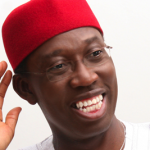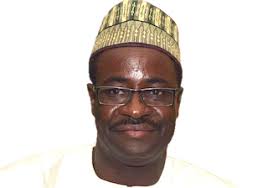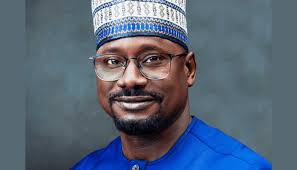Experts reaction trail Buhari’s N10.77trn 2020 budget presentation

…It’s high time Nigeria found ways to address its deficit issues -Economist
…Government must stop saying our GDP is within means -Expert
…Budget does not capture how the Govt will lift 100m out of poverty -Rotimi
Economists and finance experts have reacted to the N10.77trillion 2020 budget presented to the joint session of the National Assembly by President Muhammadu Buhari on Tuesday in Abuja.
President Muhammadu Buhari , while presenting the 2020 Appropriation Bill, explained that it is designed to enhance his administration’s social investment programmes, in order to further, deepen their impact on the marginalised and most vulnerable Nigerians.
The federal executive council had proposed N10.007trillion for the financial year, but the figure was increased to N10.33trillion by the National Assembly.
Speaking at the presentation of the session, President Buhari said the 2020 budget was designed to be a budget of “Fiscal consolidation to strengthen our macroeconomic environment; investing in critical infrastructure, human capital development and enabling institutions, especially in key job creating sectors.’’
He added that the budget was meant for “incentivising private sector investment essential to complementing the government’s development plans, policies and programmes; and enhancing our social investment programmes to further deepen their impact on those marginalised and most vulnerable Nigerians.”
According to him, the total federal government revenue in 2020 is N8.155trillion, comprising oil revenue of N2.64trn, non-oil tax revenues of N1.81trillion and other revenue of N3.7trillion.
2020 FISCAL YEAR: BUHARI TO PRESENT N11TR BUDGET TO NATIONAL ASSEMBLY TODAY
“This is seven per cent higher than the 2019 comparative estimate of N7.594 trillion inclusive of the government owned enterprises,’’ he said.
President Muhammadu Buhari said non-debt recurrent expenditure include N3.6 trillion for personnel and pension costs, an increase of N620.28 over the 2019 fiscal year figure.
“This increase reflects the new minimum wage as well as our proposals to improve remuneration and welfare of our police and armed forces,’’ he said.
He disclosed that N2.46 trillion was earmarked for capital projects, inclusive of N318.06 billion in statutory transfers.
Other estimates are N556.7 billion for statutory transfers; N2.45 trillion for debt servicing and provision of N296 billion as sinking fund.
He explained that the sinking fund would be used to “retire maturing bonds to local contractors”.
The 2020 budget is based on an oil production estimate of 2.18 million barrels per day, oil price benchmark of 57 dollars per barrel and an exchange rate of N305 to a dollar.
Other benchmarks are: real Gross Domestic Product (GDP), the growth rate of 2.93 per cent while inflation rate “is expected to remain slightly above single digits in 2020’’
On sectoral allocation, the president said the Ministry of Interior would get N35 billion as against N569 billion in 2019, Defence (N100 billion), Education (N48 billion) and Health (N46 billion) for some key spending
He noted with delight the continued recovery of the nation’s economy as well as the increase in the foreign reserve from 23 billion dollars in 2016 to N42.5 billion dollars in August.
“This increase is largely due to favourable prices of crude oil in the international market, minimal disruption of crude oil production has given the stable security in the Niger Delta region and our import substitution drive, especially in key commodities,’’ he explained.
But commenting on this development, an economist, Dr Chichi Ashiwe said that it’s high time Nigeria found ways to address its deficit issues.
According to him, our GDP is about $378billion dollars and our debt to GDP is currently 6 per cent which is about $28billion dollars and reasonably high.
“The idea that the government keeps saying our GDP is within means must stop.
“In the Medium Term Expenditure Framework too, the revenue for oil fell N2trillion short if the N4trnillin budgeted for which leaves us with a deficit of almost 46 per cent,” he said.
He added that the only way forward for the government to move forward is to invest more in her people and provide ways of making them productive rather than keep borrowing on frivolous items.
Also, a political economist, Adoke Ijoji has said breaking down the budget does not capture the way and manner which the government will lift the 100 million people it intends to lift out of poverty.
Ijoji said, “If you look at the budget, there is no plan on how to tackle unemployment, growing inflation and linking markets for improved growth.
“Tackling budget deficit and encouraging industrialization is one of the key things that the budget should capture which unfortunately did not.
“In saner climes, industrialization attracts people to the city, but here people move to the cities without industrialization which is not proper because, by 2025, our population may grow to about 250 million, how we intend to cater to this growing population wasn’t reflected,” he added.
Also, Bayo Rotimi, a financial consultant at Quest Advisory disagreed with the national assembly in jacking up the budget by about N700bn.
Rotimi said “National assembly are just optimistic in large budget outlook and the budget has been put under the pressure to perform at all means.
“They would have left the budget as proposed, if it performs beyond that, then it’s fine,” he said.
He added that the increased budget benchmark from $55 per barrel to $57 per barrel was unnecessary.
He said oil prices shock cannot be overemphasized, which is why the benchmark proposed by the executive.
Rotimi also said for the budget to perform optimally, revenue collection mechanisms for the Nigeria Customs Service and the Federal Inland Revenue Service must be enhanced as dependency on oil revenue is now a thing of the past.










